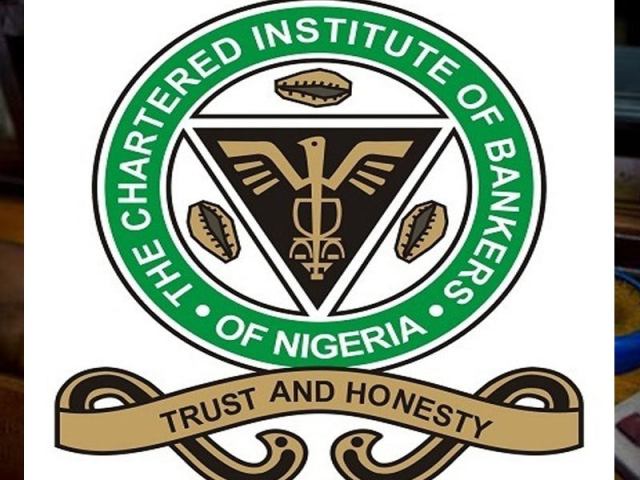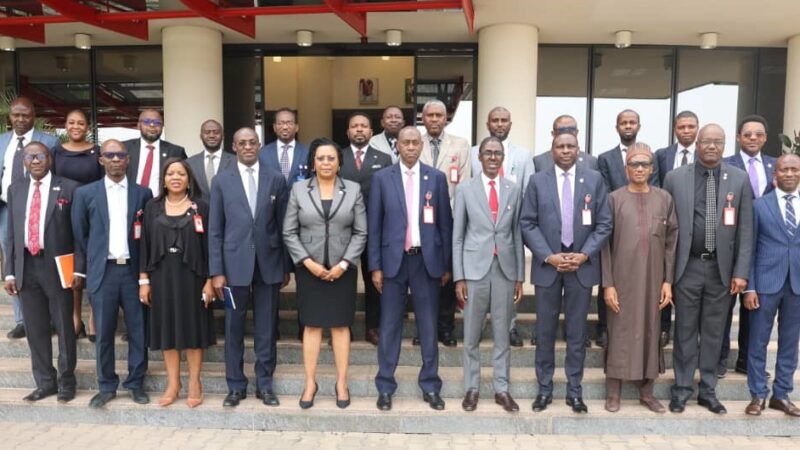CIBN Implores Banks To Embrace GIS Policy


By Oir Correspondent
The Chartered Institute of Bankers of Nigeria on Tuesday called on the banks’ customers and stakeholders in the banking industry to embrace the Non-Performing Loans & The Global Standing Instruction (GSI) Policy which is not only to enhance loan recovery processes and financial system stability but also to promote economic prosperity of the Country.
The President/Chairman of Council, Mr. Bayo Olugbemi made the call while delivering his remarks as the Chairman at a Webinar, organised by the Centre for Financial Studies (CFS) of The Chartered Institute of Bankers of Nigeria (CIBN).
Mr. Olugbemi maintained that bad loans have a long-standing issue in the Nigerian banking sector and the GSI will represent a new dawn in the credit management and debt recovery process.
According to him, Banks can only survive when borrowers pay their loans, funds are available to the financial institutions to service other customers and this way they can promote shared prosperity and more people can be lifted out of poverty.
The Webinar tagged CIBN Advocacy Dialogue Series 3.0 focused on “”Non-Performing Loans & The Global Standing Instruction (GSI) Policy: Impact & Insights for Financial Stability’.
Mr. Olugbemi told over seven hundred participants who connected to the programme through Zoom and YouTube that the issues of Non-Performing Loans and particularly those emanating from the attitudes of unrepentant debtors would be more efficiently resolved as a result of this policy.
In his intervention, Mr. Kevin Amugo, Director of Financial Policy and Regulation at the Central Bank of Nigeria (CBN) and keynote speaker at the webinar stated that banks have recovered N50.32 million bad loans from debtors within nine days of the commencement of the Global Standing Instruction (GSI).
” The size of the recovered NPLs was due to the fact that the Central Bank of Nigeria was still working on the GSI protocol for non-individual debtors, which means the recovery was made from individual loan defaulters, while the Other Financial Institutions (MFBs, PMBs, DFI & FCs) onto CRMS as well as Mobile Money Operators will commence onboarding thereafter GSI platforms.” he said.
According to Amugo, the data from the Central Bank of Nigeria showed that NPLs in banks were higher during the economic downturn, and as the figure of NPLs rise, the instability in the sector worsens, adding that between 2015 and 2017, when the country experienced sharp drop in crude oil prices, currency crisis as a result of the drop in foreign exchange inflows and the period of recession, the NPLs rose sharply from 5 per cent to 15 per cent.
Mr. Adesola Adeduntan, Managing Director/CEO of First Bank Nigeria who was ably represented by Olusegun Alebiosu, the bank’s chief risk officer, commended CBN for the recovery made so far, adding that GSI is what we have been looking forward to as a coordinated approach to addressing the NPL issue in the banking industry.
In conclusion, Hajia Saratu Iya-Aliyu, National President of the Nigerian Association of Chambers of Commerce, Industry, Mines and Agriculture who was represented by Mrs. Margaret Orakwusi of NACCIMA said in other to discourage loan default and high NPLs, banks should reduce interest rate,”
Mr. Osaro Eghobamien, SAN, Managing Partner, Perchstone & Graeys and Dr. Biodun Adedipe, FCIB, Chairman, CIBN Research Committee and Chief Consultant BAA Consult were the other Speakers at the event.







